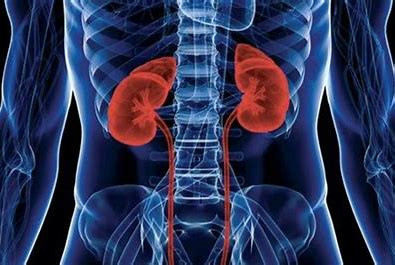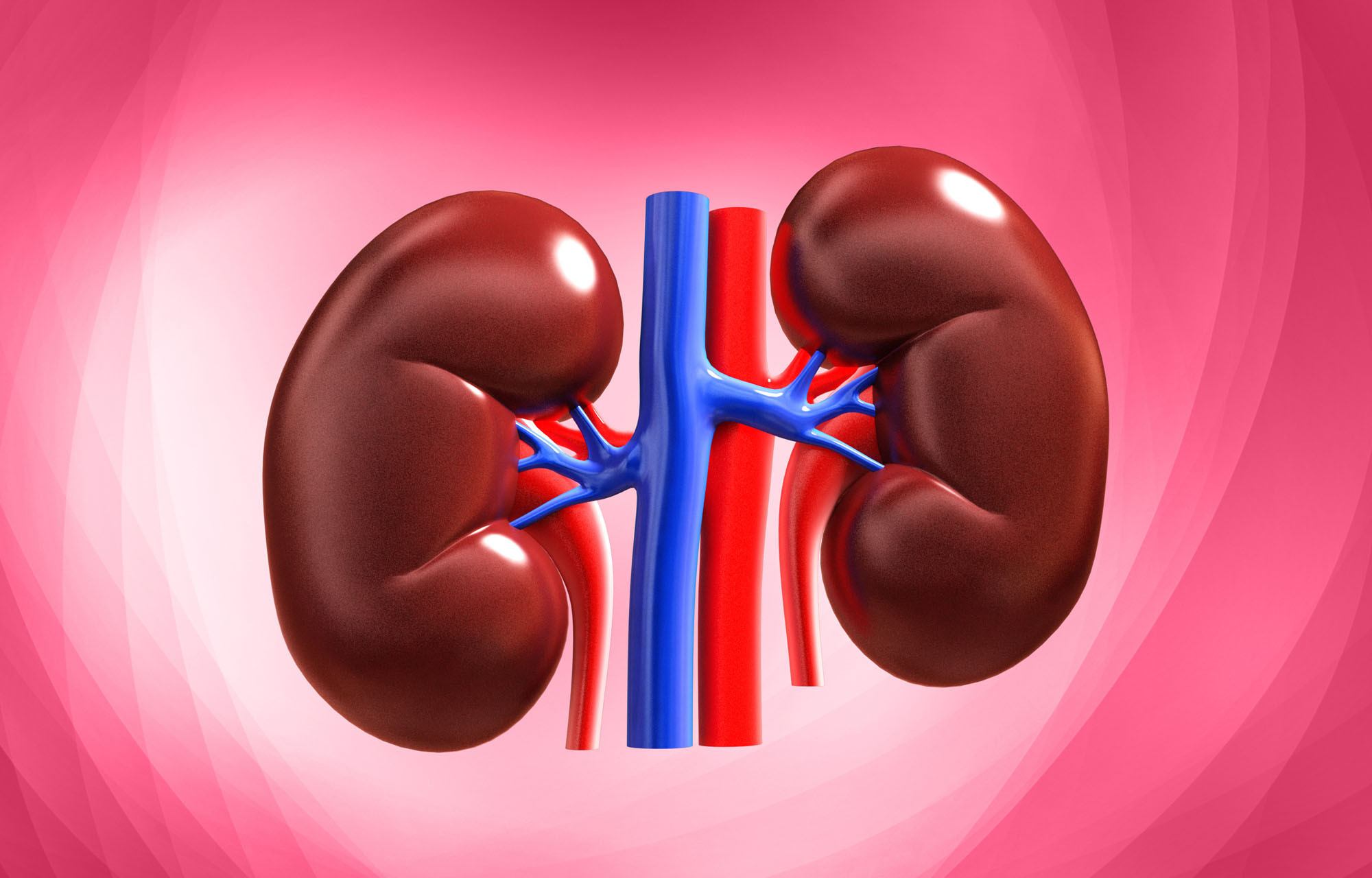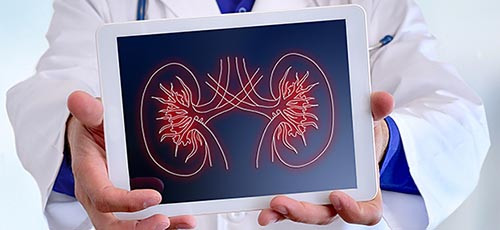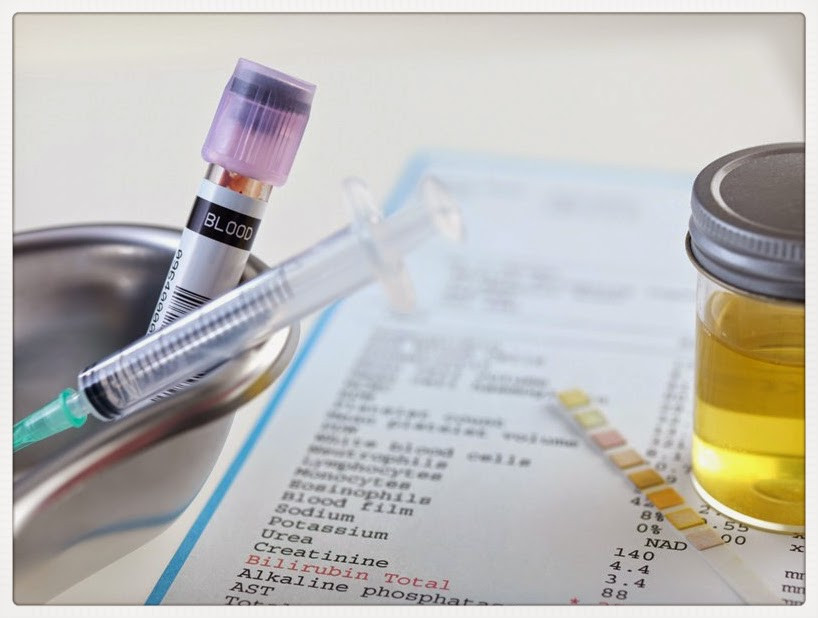Definisi
Gagal ginjal akut adalah penyakit pada organ ginjal yang ditandai dengan hilangnya kemampuan organ ginjal untuk membuang garam, cairan, dan zat sisa metabolisme berlebih yang berasal dari darah. Organ ginjal memiliki peran utama dalam mengeliminasi zat-zat tersebut.
Cairan tubuh akan menumpuk dan berbahaya bagi tubuh jika ginjal tidak dapat melakukan kemampuannya dalam menyaring dan membuang zat sisa metabolisme tubuh. Kondisi ini juga akan menimbulkan zat sisa dan elektrolit terkumpul di dalam tubuh dan berisiko meningkatkan kejadian kematian pada seseorang.
Gagal ginjal akut biasanya terjadi pada seseorang yang telah mendapatkan perawatan di rumah sakit. Hal ini dapat terjadi dalam waktu beberapa jam, beberapa hari hingga minggu. Pasien dengan sakit berat dan membutuhkan perawatan intensif memiliki risiko yang paling tinggi untuk mengalami gagal ginjal akut.
Gagal ginjal akut dapat mengancam jiwa dan membutuhkan perawatan yang intensif. Meskipun demikian, kondisi gagal ginjal akut bersifat reversible. Artinya, apabila kondisi kesehatan membaik, maka perbaikan ginjal memungkinkan terjadi.
Penyebab
Gagal ginjal akut dapat terjadi karena beberapa alasan. Beberapa alasan yang memungkinkan terjadinya gagal ginjal akut yaitu nekrosis tubular akut (cedera struktur ginjal), dehidrasi yang berat atau tiba-tiba, adanya racun atau obat-obatan tertentu yang bersifat toksik bagi ginjal, penyakit ginjal autoimun seperti sindrom nefritis akut dan nefritis interstisial (infeksi ginjal), dan obstruksi saluran kemih (tersumbatnya saluran kemih).
Penurunan aliran darah menuju ginjal pun dapat merusak fungsi dari organ ginjal. Beberapa kondisi medis yang dapat menurunkan aliran darah menuju ginjal adalah tekanan darah rendah, luka bakar, dehidrasi, perdarahan, trauma, syok sepsis, penyakit berat tertentu, dan proses pembedahan.
Beberapa penyakit medis dapat menyebabkan penyumbatan pada pembuluh darah ginjal dan dapat menimbulkan gagal ginjal akut. Penyakit-penyakit tersebut di antaranya:
- Sindrom uremik hemolitik
- Idiopatik Trombositopenik Purpura (kelainan yang menyebabkan seseorang mudah memar atau berdarah)
- Hipertensi maligna (hipertensi darurat dimana tekanan darah bisa mencapai 180/120 mmHg atau lebih)
- Reaksi transfusi
- Skleroderma
Faktor Risiko
Terdapat beberapa faktor yang dapat meningkatkan risiko seseorang mengalami gagal ginjal akut, diantaranya:
- Lanjut usia
- Dirawat di rumah sakit, terutama jika mengalami penyakit serius yang membutuhkan perawatan intensif
- Penyumbatan pembuluh darah di lengan atau kaki (penyakit arteri perifer)
- Memiliki penyakit ginjal
- Penyakit liver (hati)
- Diabetes, terutama apabila gula darah tidak terkontrol baik
- Tekanan darah tinggi
- Gagal jantung
- Obesitas
- Kanker dan perawatannya
Sedang menjalani atau pascaoperasi pembedahan jantung, perut, atau transplantasi sumsum tulang juga dapat meningkatkan risiko terjadinya gagal ginjal akut.
Gejala
Beberapa gejala dari gagal ginjal akut yang dapat menjadi penanda awal adalah:
- Penurunan jumlah pengeluaran (output) urine, meskipun terkadang masih tetap normal
- Retensi cairan, dapat menyebabkan pembengkakan di kaki, pergelangan kaki, punggung atau telapak kaki
- Sesak napas
- Denyut jantung tidak normal
- Nyeri dada
- Bau mulut
- Kelelahan
- Nyeri pinggul
- Tremor (gemetar) pada tangan
- Memar yang mudah terjadi
- Perubahan kesadaran atau mood terutama pada usia lanjut
- Penurunan nafsu makan
- Penurunan sensorik terutama pada tangan dan kaki
- Perdarahan yang lama
- Kejang atau koma pada kasus yang berat
- Mual dan muntah
- Tekanan darah tinggi
- Rasa logam pada mulut
Diagnosis
Diagnosis gagal ginjal akut adalah diagnosis yang dapat ditegakkan melalui wawancara medis, pemeriksaan fisik, hingga pemeriksaan penunjang bila tersedia dan perlu untuk dilakukan.
Pada wawancara medis, dokter akan menanyakan gejala yang dirasakan oleh pasien saat ini. Gejala-gejala yang ada dapat mengarahkan ke suatu penyakit tertentu sehingga Anda perlu mengutarakan gejala yang dirasakan selengkap mungkin dan disertai dengan sejak kapan gejala tersebut mulai dirasakan. Informasi ini penting bagi dokter dalam rangka menegakkan diagnosis medis tertentu. Apabila gejala yang dirasakan mengarahkan ke penyakit gagal ginjal akut, maka dokter akan melanjutkan ke pemeriksaan fisik dan pemeriksaan penunjang.
Pada pemeriksaan fisik, dokter akan melakukan pemeriksaan sesuai dengan gejala yang dirasakan oleh pasien sehingga dapat ditemukan beberapa tanda klinis yang adalah tanda objektif yang didapatkan oleh dokter melalui pemeriksaan fisik.
Pada kasus gagal ginjal akut, dokter dapat menemukan adanya pembengkakan di tubuh terutama pada kelopak mata dan pergelangan kaki.
Jika gejala dan pemeriksaan fisik mengarah ke diagnosis gagal ginjal akut, dokter dapat melakukan beberapa pemeriksaan penunjang untuk mengonfirmasi diagnosis, seperti:
- Pengukuran pengeluaran (output) urine, pemeriksaan ini dilakukan untuk mengukur jumlah urine yang keluar selama 24 jam.
- Tes urine, menganalisis sampel urine Anda untuk mengetahui apakah terdapat kelainan yang mengarah ke diagnosis gagal ginjal akut.
- Tes darah, pemeriksaan ini untuk melihat fungsi ginjal melalui kadar ureum dan kreatinin dalam darah, yang dapat menjadi penanda terjadinya gagal ginjal akut.
- Pemeriksaan pencitraan, seperti USG dan CT scan dapat dilakukan untuk melihat ginjal lebih jelas atau untuk menentukan apakah terdapat obstruksi (sumbatan) pada saluran kemih.
- Biopsi ginjal, pada beberapa kasus dokter dapat melakukan pengambilan sampel ginjal untuk dilakukan pemeriksaan di bawah mikroskop.
Tata Laksana
Terapi yang dapat diberikan pada gagal ginjal akut bergantung pada penyebab dari gagal ginjal akut. Tujuan dalam tata laksana adalah untuk mengembalikan fungsi ginjal menjadi normal. Mencegah cairan dan zat sisa metabolisme menumpuk di dalam tubuh selama terjadi proses penyembuhan ginjal adalah hal yang penting. Ada beberapa hal yang dapat dilakukan pada kasus gagal ginjal akut.
- Diet
- Dokter akan menyarankan Anda untuk membatasi jumlah cairan yang masuk ke dalam tubuh dan membatasi makanan tertentu. Hal ini akan mengurangi zat sisa metabolisme yang normalnya dikeluarkan melalui ginjal. Dokter akan merekomendasikan Anda untuk diet tinggi karbohidrat, rendah protein, garam, dan kalium.
- Obat-obatan
- Obat-obatan yang diresepkan dapat berupa antibiotik untuk mencegah infeksi yang dapat terjadi pada waktu bersamaan. Obat diuretik dapat membantu fungsi organ ginjal untuk mengeluarkan cairan. Kalsium dan insulin dapat membantu mengurangi kadar kalium darah yang tinggi pada tubuh apabila diperlukan berdasarkan dari pertimbangan dokter.
- Cuci Darah (Dialisis)
- Dokter akan menyarankan Anda untuk melakukan cuci darah jika diperlukan dan kemungkinan ini bersifat sementara.
Komplikasi
Beberapa komplikasi yang dapat terjadi akibat dari kasus gagal ginjal akut:
- Gagal ginjal kronik
- Kerusakan pada jantung
- Kerusakan pada sistem saraf
- Penyakit ginjal stadium akhir
- Tekanan darah tinggi
Pencegahan
Gagal ginjal akut seringkali sulit diprediksi atau dicegah. Tetapi Anda dapat mengurangi risiko Anda dengan cara merawat ginjal Anda, seperti:
- Perhatikan aturan pakai obat-obatan yang Anda konsumsi. Ikuti saran dan petunjuk penggunaan obat sesuai anjuran dokter, karena beberapa obat dapat mengganggu kinerja ginjal
- Konsultasikan kepada dokter cara merawat ginjal, terlebih jika Anda memiliki penyakit kronis seperti tekanan darah tinggi dan diabetes. Lakukan pengobatan rutin terhadap penyakit kronis untuk mencegah terjadinya gagal ginjal
- Lakukan gaya hidup sehat, seperti olahraga teratur, makan makanan dengan gizi seimbang, dan hindari mengonsumsi alkohol
Kapan Harus ke Dokter?
Jika Anda mengalami perburukan gejala yang sudah ada seperti pembengkakan yang mulai menyebar dari kelopak mata dan pergelangan kaki, terjadi pengurangan atau berhentinya aliran urine, sebaiknya Anda memeriksakan diri lebih lanjut ke dokter spesialis penyakit dalam (Sp.PD) atau spesialis penyakit dalam konsultan ginjal dan hipertensi atau nefrologis (Sp.PD-KGH).
Dokter akan melakukan wawancara medis, pemeriksaan fisik, hingga pemeriksaan penunjang tertentu untuk menetapkan diagnosis pasti dari penyakit yang mendasarinya dan tata laksana yang tepat dan sesuai kebutuhan.
Mau tahu informasi seputar penyakit lainnya? Cek di sini, ya!
- dr Nadia Opmalina
Healthline. Acute kidney failure. October 2017. https://www.healthline.com/health/acute-kidney-failure
Medline Plus. Acute kidney failure. July 2022. https://medlineplus.gov/ency/article/000501.htm#:~:text=Acute%20kidney%20failure%20is%20the,and%20electrolytes%20in%20your%20body.
Mayo Clinic. Acute kidney failure. July 2022. https://www.mayoclinic.org/diseases-conditions/kidney-failure/symptoms-causes/syc-20369048











